Biometrics
Filter resources
-

Reclaiming faces and public spaces!
The Reclaim Your Face movement is growing, and our demands for transparency, limiting the accepted uses and respect for humans are becoming more and more common across Europe. New organisations are joining the coalition each week, and people across Europe continue to sign the petition to add their voices to our demands. Now, thanks to campaigning by Homo Digitalis in Greece and Bits of Freedom in the Netherlands, we’re getting closer to real political and legislative changes that will protect our faces and our public spaces from biometric mass surveillance.
Read more
-

Looking back at digital rights in the era of a surveillance pandemic
2020 started as a year to build momentum to tackle various digital rights issues, including mass surveillance and freedom of expression online. Needless to say, the global pandemic disrupted not only these efforts but also our health, personal relations, basic survival needs and ways to organise around human rights. After 9 months of living and working in a pandemic, we look back at what we achieved and the ways forward from here.
Read more
-

10,000 people demand a ban on biometric mass surveillance
Reclaim Your Face is a European movement to bring people’s voices into the discussion around the use of biometric data to monitor the population. Since its launch only two weeks ago, over 10,000 people have signed their support by adding their name to the call for transparency, red lines, and respect for humans in European uses of biometrics.
Read more
-
Campaign “Reclaim Your Face” calls for a Ban on Biometric Mass Surveillance
Civil society across Europe launches the “Reclaim Your Face” campaign, demanding that local and national authorities listen to their communities about the serious risks of using facial recognition and other biometric technologies in public spaces. The newly formed coalition calls to ban biometric mass surveillance, in reaction to the rapid and secretive roll out of invasive and unlawful technologies by police forces and local authorities in many European countries.
Read more
-

Booklet: Technological testing grounds, border tech is experimenting with people’s lives
The European Union is increasingly experimenting with high risk migration management technologies.
Read more
-

Attention EU regulators: we need more than AI “ethics” to keep us safe
In this post, Access Now and European Digital Rights (EDRi) analyse recent developments in the EU AI debate and explain why we need a bold, bright-line approach that prioritises our fundamental rights.
Read more
-

People, not experiments: why cities must end biometric surveillance
We debated the use of facial recognition in cities with the policy makers and law enforcement officials who actually use it. The discussion got to the heart of EDRi’s warnings that biometric surveillance puts limits on everyone’s rights and freedoms, amplifies discrimination, and treats all of us as experimental test subjects. This techno-driven democratic vacuum must be stopped.
Read more
-
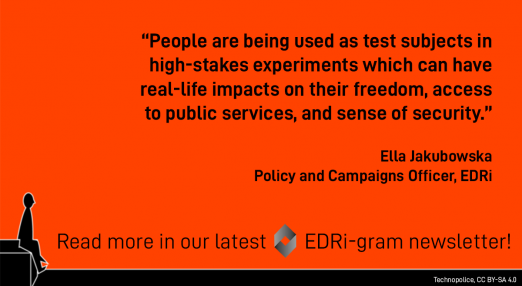
EDRi-gram, 14 October 2020
The public are being treated as experimental test subjects: across these examples, it is clear that members of the public are being used as subjects in high-stakes experiments which can have real-life impacts on their freedom, access to public services, and sense of security.
Read more
-
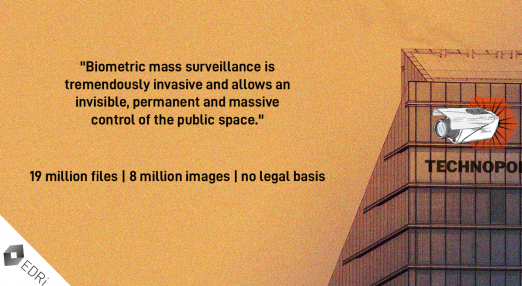
LQDN fights to protect French citizens from biometric mass surveillance
In August, La Quadrature du Net (LQDN) filed a complaint before the Conseil d’État (France’s highest administrative court) against provisions of the French code of criminal procedure which authorise the use of facial recognition to identify people registered in a criminal record police file – called “TAJ” for “Traitement des antécédents judiciaires” – by the police.
Read more
-

For the “right to analog”: IuRe strengthens the Digital Freedoms program
For almost twenty years, the Czech watchdog Iuridicum Remedium (IuRe) has been fighting for human freedoms in real and digital life. In its Digital Freedoms program, IuRe is currently working on several interlinked digital freedom campaigns that can be found via their new campaigning website.
Read more
-
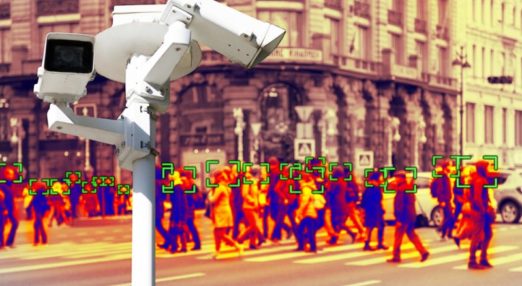
Technology has codified structural racism – will the EU tackle racist tech?
The EU is preparing its ‘Action Plan’ to address structural racism in Europe. With digital high on the EU’s legislative agenda, it’s time we tackle racism perpetuated by technology, writes Sarah Chander.
Read more
-
SHARE Foundation presents #hiljadekamera : A documentary on biometric mass surveillance
SHARE Foundation has recently released a short documentary on the controversial use of the mass surveillance system in Belgrade, Serbia. Various digital experts and activists took part in the documentary, including the national Data Protection Authority in Serbia and EDRi's own Policy and Campaigns Officer, Ella Jakubowska.
Read more
